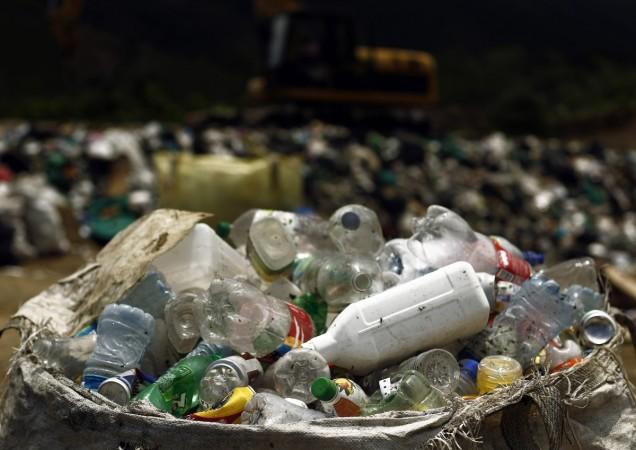A patch of floating garbage in the Pacific Ocean has now grown to a size three times the size of continental France, scientists say.
The Great Pacific Garbage Patch, which lies halfway between California and Hawaii, encompasses 1.6 million square km of area and is comprised of around 80 million kg of litter, 99% of which is made up of plastic.
Researchers from the Ocean Cleanup Foundation say the new estimate of the amount of litter in the region is at least a four-fold increase compared to previous figures.
The alarming findings are detailed in the journal Scientific Reports.
Plastic is believed to have started accumulating in the northern Pacific from the 1970s, with winds and ocean currents causing litter to converge at a single area.
Laurent Lebreton, lead scientist of the three-year study, said the garbage patch has been growing at an exponentially rate over recent decades and is now comprised of some 1.8 trillion individual pieces.
"Although randomly scattered on the surface of an infinite deep blue ocean, the larger debris from degraded containers, bottle caps or crates to floats and derelict fishing gear represent 92% of the current available plastic mass floating in the region," Lebreton said.
"As it degrades over time, in the long term, this material has the potential to increase levels of microplastics by 30-fold to a staggering total of around 50 trillion particles."

Plastic waste is a major problem as it does not decompose naturally and instead breaks down into ever smaller pieces.
There is extensive evidence to suggest that ingestion of micro plastics can cause injury and death to a wide range of marine animals, including commercially important fish and shellfish.
Lebreton said there is also evidence of as-yet unexplored processes that move floating microplastic particles from the sea surface into the deepest layers of the oceans.
He added: "These figures portray the urgency of the situation and support the necessity to act rapidly by implementing substantial international measures in the coming decade to stop the increasing inflow of plastic waste into our ocean; and by supporting removal initiatives, such as coastal and ocean cleanups, for the existing mess accumulating in the environment since the introduction of plastic in our societies."
The study comes days after a UK government report warned that the amount of plastic in the world's oceans is on track to triple by 2025 compared to 2015 levels.









!['Had denied Housefull franchise as they wanted me to wear a bikini': Tia Bajpai on turning down bold scripts [Exclusive]](https://data1.ibtimes.co.in/en/full/806605/had-denied-housefull-franchise-they-wanted-me-wear-bikini-tia-bajpai-turning-down-bold.png?w=220&h=138)



